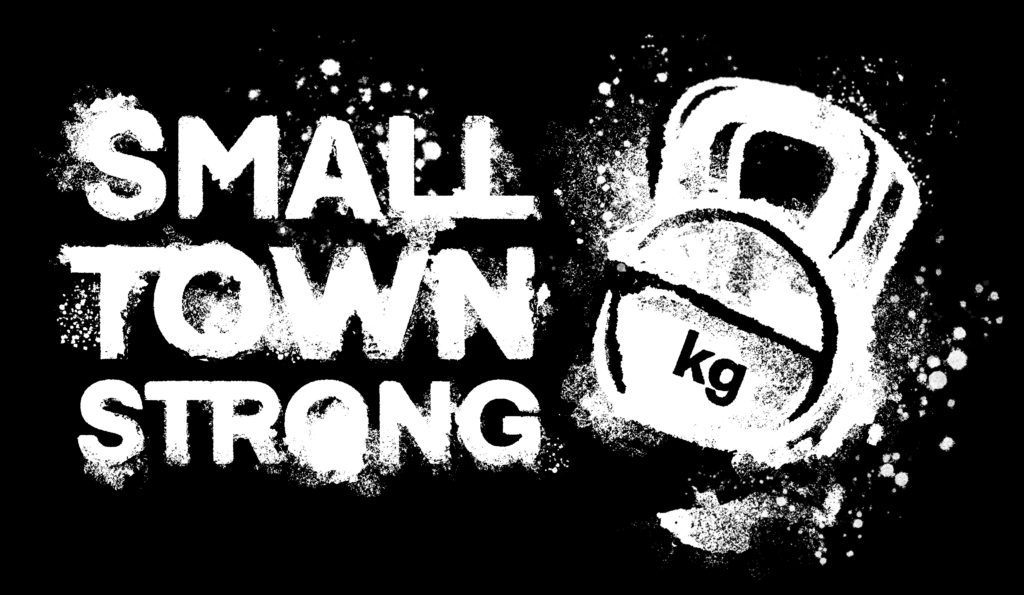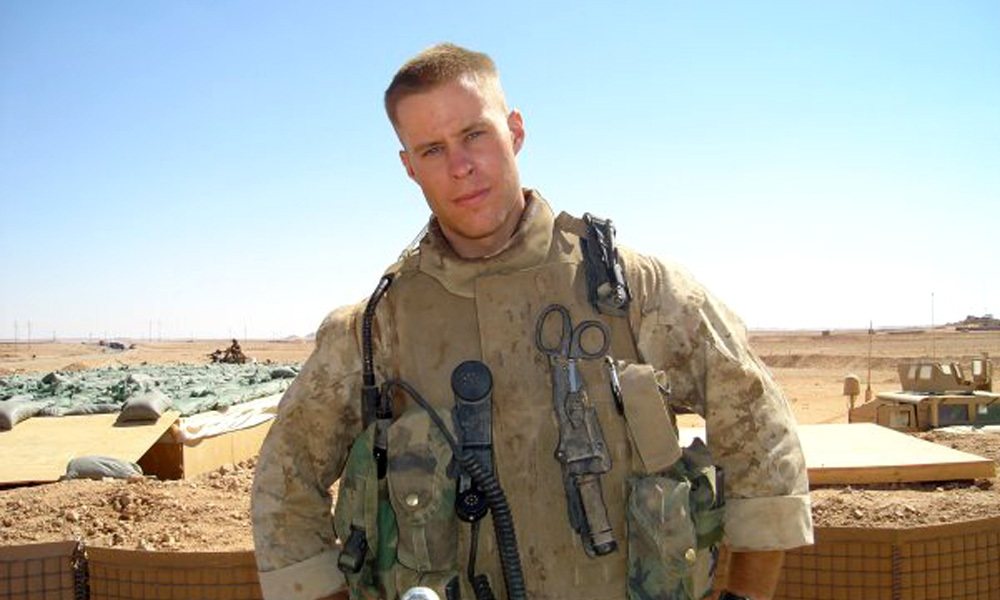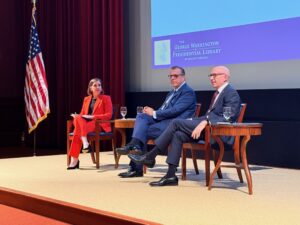When Chase Millsap first visited his wife Maile’s hometown of Portsmouth, Ohio, it reminded the former Marine infantryman and Green Beret of the war-torn cities he saw in Iraq.
The buildings were broken down and businesses were boarded up. People were out on the streets, some looking like zombies. “It was almost like a bomb had been dropped there,” said Millsap, a graduate of the USC Sol Price School of Public Policy.
That bomb was drug addiction, which turned the town into a nationally known example of America’s opioid crisis.
Yet as Millsap, now a filmmaker, continued to visit Portsmouth on holidays, he witnessed early signs of a recovery. Businesses opened instead of closed, and with that came jobs and money returning to the community. The town built a children’s museum. “I remember thinking, ‘What is going on? What is the change?’”

Millsap answers those questions in his new documentary, “Small Town Strong,” which chronicles how the people of Portsmouth – led by Army veteran and CrossFit gym owner Dale King – turned their town around. Millsap, who co-directed the film with his brother Spencer, shows how King opened his gym’s doors to people battling opioid addiction, helping them recover through fitness and a supportive community. Millsap called the film “a comeback story.”
“This was the first time fitness had been introduced in the treatment cycle, at least in our area, and we were able to capture not only the physical transformations, but how that affected the town,” said Millsap, who spent five years working on the film and now lives in Portsmouth with his family. “I think this is one of those cases where a community really found the gaps in the policy and filled them with community action.”
Films provide policy lessons
Millsap, who earned a Master’s in Public Policy in 2016, specializes in filmmaking that brings attention to policy challenges. His previous documentaries and TV shows have tackled topics such as climate change, criminal justice reform, and veterans’ issues. He was a writer and consultant for the CBS sitcom, “United States of Al,” about an Afghan refugee adjusting to life in the U.S. The show injected a policy topic – special immigration visas – into a comedy.
There are many policy lessons to be learned from “Small Town Strong,” according to Rosalie Liccardo Pacula, Elizabeth Garrett Endowed Chair in Health Policy, Economics, and Law at the USC Price School and senior fellow with the USC Schaeffer Center for Health Policy & Economics.

During a recent USC Price/Schaeffer screening and panel discussion about the film, Pacula noted that high-intensity exercise can help with addiction recovery, but gym owner King also worked and supported people in recovery in other ways, by creating job opportunities, assisting with housing, and forging meaningful relationships with them.
“It’s not just about fitness,” said Pacula, a nationally-recognized expert on the economics of addiction. “This program is successful because it built community. The friends at the gym, the connections at the gym that turn into jobs and skill development. Even if you don’t have housing, even if you have a criminal justice record, people in this program will take a chance on you.”
From Iraq to Hollywood
Millsap’s interest in policy can be traced to his 15 years in the military, including three deployments to Iraq. There, he often thought about the policies that created problems he witnessed on the ground. For example, U.S. immigration policy prevented an Iraqi military officer who saved Millsap’s life from escaping danger when enemy militants threatened the officer and his family. Allied security forces didn’t qualify for asylum.
“This is a guy who fought with us for almost 10 years, and we can’t even let him on a base to protect him?” Millsap said. “That was, for me, a gut punch.”

Master of Public Policy
Advocate & Innovate for a More Just World
Effective public policy has the power to disentangle increasingly complex global and domestic challenges. With an MPP from USC, you will have that power too.
Find Out MoreMillsap told the officer’s story through a National Geographic documentary about him reconnecting with his friend. He also helped launch a nonprofit called No One Left Behind that helped resettle thousands of wartime allies. His friend was not one of them, but Millsap said he is safe now.
A career in Hollywood may seem like an unusual path for a policy graduate, but Millsap uses the research, analysis and communication skills he learned at the USC Price School when he tells stories.
“Being in Los Angeles, I thought taking that policy paper, that white paper idea, and using it visually was really compelling to me. That’s why I got into production,” Millsap said. “I want the power of film to help solve some of these big problems.”





